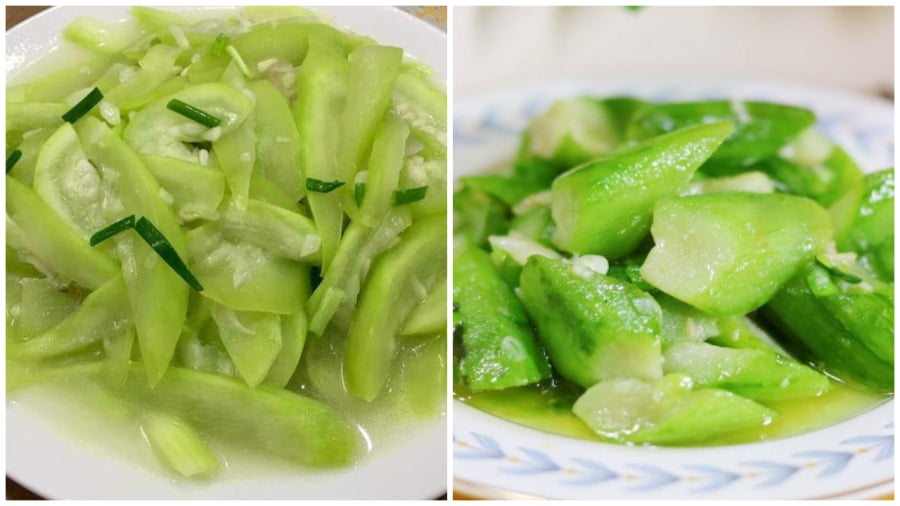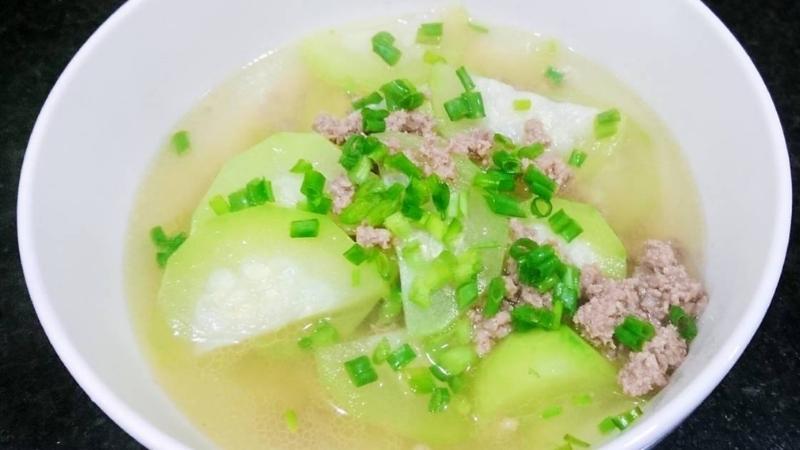Eating bitter gourd, bottle gourd can cause poisoning
According to experienced cooks and nutrition experts, when cooking dishes from fruits such as bitter gourd, bottle gourd, or pumpkin, they always have a naturally sweet, cool and nutritious flavor. However, sometimes we can taste bitterness. The reason why bitter gourd, bottle gourd or pumpkin can taste bitter may be due to bee stings or contamination of the growing environment, improper fertilizer use, or improper storage. Plant nutrient deficiencies can also lead to bitter gourds.
Eating bitter gourd, bottle gourd or pumpkin can cause poisoning due to the presence of bitter substances containing alkaloids. Alkaloids are substances with strong medicinal properties found in plants, and the human body is very sensitive to the toxicity of these substances.
Being poisoned by bitter gourd, bottle gourd or pumpkin can have symptoms such as dizziness, weakness, stomach cramps, and other poisoning symptoms after eating. Therefore, when you encounter bitter gourd, bottle gourd or pumpkin, it is advisable not to eat them to improve brain function.
Bitter gourd, bottle gourd and pumpkin usually contain iron, which helps the brain receive oxygen and function well. Iron deficiency can lead to poor memory, indifference, restlessness, lack of attention, and decreased productivity.

Health benefits of bitter gourd, bottle gourd
Enhancing immune system
If you drink juice extracted from bitter gourd, bottle gourd or pumpkin, it can help regulate the body’s protective mechanisms and allow it to better fight infections and viruses.
Preventing urinary problems
In the nutritional composition of bottle gourd, bitter gourd usually contains manganese, which is a necessary component for the production of digestive enzymes responsible for a process called gluconeogenesis. Manganese helps promote the insulin secretion process, reduce lipid peroxidation, and enhance liver function.
Preventing eye problems
Because bitter gourd, bottle gourd and pumpkin are rich in vitamin A, they help prevent macular degeneration, which can lead to blindness. A study conducted by the National Eye Institute in the US showed that people who supplemented vitamin C, vitamin A, copper, vitamin E and zinc, had a 25% reduction in macular degeneration over a 6-year period. The study also found that eye drops containing vitamin A have an effective role in treating dry eyes. Supplementing vitamin A-rich foods such as bitter gourd in the daily diet can help reduce eye diseases.

Supporting the treatment of joint inflammation
Bitter gourd, bottle gourd or pumpkin are excellent sources of copper, which helps provide anti-inflammatory properties, relieve pain and stiffness associated with joint inflammation. It can also support muscle strength and repair connective tissue.
Treating anemia
In the nutrition composition of climbing fruits such as bitter gourd, bottle gourd and pumpkin, there is a considerable amount of vitamin B6 necessary for the production of hemoglobin in the blood, helping transport oxygen to cells and mobilize iron. Consuming sufficient vitamin B6 can help reduce symptoms of anemia such as pain, fatigue, and prevent this disease.
Acting as a blood filter
In the nutrients of bitter gourd, bottle gourd, and pumpkin, it can help remove harmful substances in the blood. Eating bitter gourd helps take care of liver health and reduce the side effects caused by long-term alcohol consumption.
Bowel relief
Like other vegetables, bitter gourd, bottle gourd have been recognized to have a healthy bowel relief property, which can be used to reduce constipation problems and even used to treat constipation-related diseases.






































